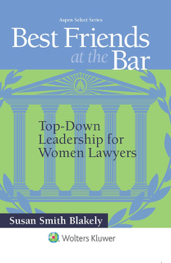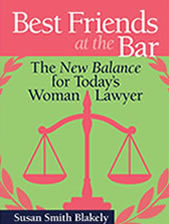This is not offered as a defense of law reviews. There is a great controversy out there, as discussed on Above The Law, citing a recent article on the subject, and I do not intend to jump into the fray on the merits of these repositories of legal thought. In the interests of full disclosure, I opted for a teaching fellowship at Georgetown Law, and I did not participate on law review there. However, I am the author of articles on constitutional and statutory law, which were published in leading law journals and are listed on my web site, and my observations about student participation on law reviews and law journals is mostly derived from that experience.
I understand the arguments against having un-experienced students edit law review articles and get them “ready” for publication. That can be a problem and potentially can affect the value of the article, particularly the value for practicing lawyers. However, there are some important considerations on the other side of the argument — considerations that have nothing to do with legal scholarship or how often judges cite to law review articles in their opinions. (Although, I have to tell you, having your law review article cited anywhere, by a court or by another law journal or legal commenter, is pretty heady stuff!)
First of all, let me say that the law students and editors, who worked on my law review articles, were top-notch thinkers and performers. They definitely added value to one of those articles in particular, and I was more than happy to give attribution in the article. However and of greater importance, the benefits were not exclusively to me, the author.
The students, who contributed to my articles, also benefited from gaining subject matter expertise while working on the article and improving their own analytical and legal writing skills in the process. It was a true teaching experience for me, and it was much more valuable to the students than any experience I had teaching legal research and writing at a top-ranked law school. One was like college, and one was like law school. In spite of the fact that I worked very hard as a teaching law fellow at Georgetown Law, I had 15 students in my class and was paid a ridiculously low stipend. I also was taking classes and working as a law clerk. As a teacher, that experience did not provide the one-on-one teaching opportunities for the student as compared to an author working with a student editor.
I am confident in saying that law review members and editors gain a lot toward becoming more effective and skilled lawyers by working with authors, who, in most cases, demand excellence for their publications. And isn’t that what law schools should be trying to do after all … develop more effective and skilled lawyers while they are in law school? Certainly, the recent push for more practice-ready law school graduates tells us that the answer to that question is yes.
For those of you who say that those same students could gain better real life lawyer skills by participating in trial practice and similar clinics in law school, I say you are comparing apples and oranges. Those clinics also provide very valuable experience, but, more and more, law practices today require really effective legal writing, especially during motions practices in settings like federal court. If you can’t write effectively to convince a judge about the merits of your arguments, you might find your matters being decided on the briefs more often than you like. In that case, your abilities to dramatically “run to court” with a file and your brilliant extemporaneous oratorical skills may not get the desired exposure.
Last but not least, let’s not kid ourselves. Law review experience still has big deal resume cache. And, who among you doesn’t need that these days?
So, think about these things when you read about how law reviews are out of fashion and lack value. Make up your own mind.
Exercise your freedom of thought!












